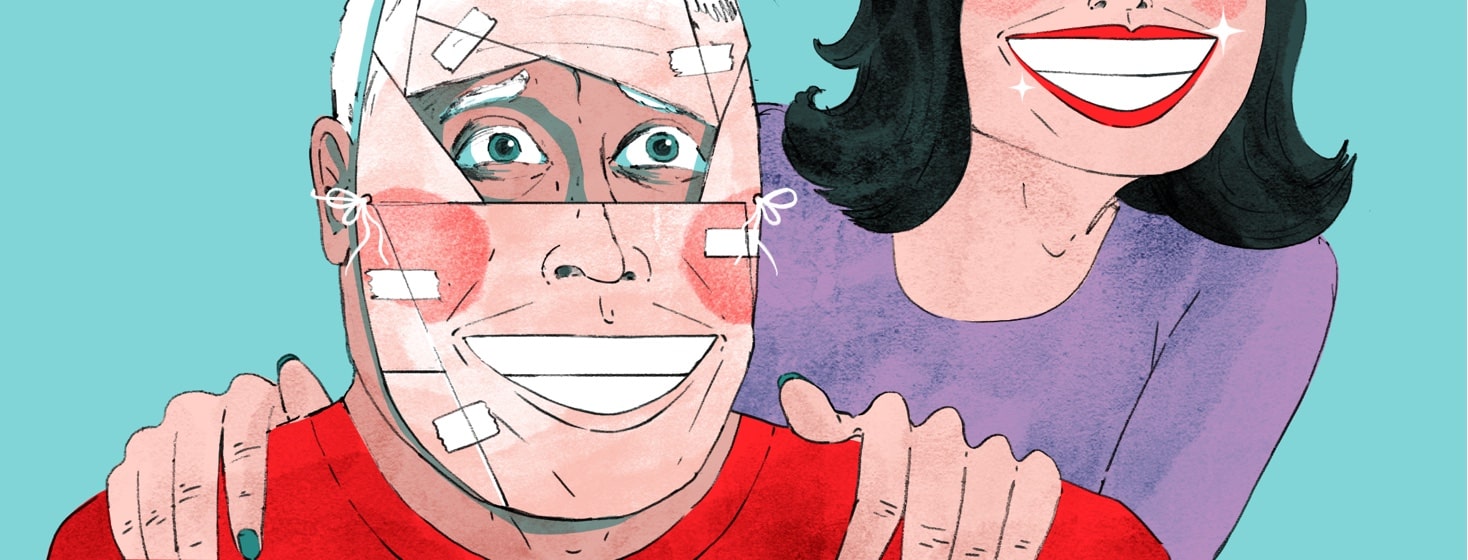Who Are You Protecting?
No one would ever question the validity of the sentiment that we should protect our loved ones. However, I think it’s pretty important that we really dive deep and ask ourselves who or what are we protecting, and what actions are we using to do so.
Acting like everything is normal with Alzheimer's
One of the hardest things to deal with is a parent or loved one losing their memory or pieces of their personality. Often, relatives try to smooth over the cracks in the facade to make everything seem ok or normal.
Faking the appearance that everything is great is, in a lot of ways, doing a pretty big disservice to the person with dementia or Alzheimer’s symptoms and other family members. By “covering” for them, we may lead others to believe everything is fine. Playing interference to keep others from asking the wrong questions or prying too much isn’t really helpful. Intercepting questions or redirecting conversations only misleads others and confuses the loved one affected.
What happens when you try to cover it up?
We bought a used car once that had a dashboard warning light that stayed on. You wouldn’t really notice unless you were looking hard because the previous owner had taken a black permanent marker and scribbled over the clear shield that covered the actual light. It made it all fade into the black background.
It didn’t fix the problem. It didn’t change the issue at all. It just covered up an important warning light. It didn’t address the underlying issue, and only served to preserve the appearance that everything was in working order. It was a “Nothing to see here, folks” kind of fix.
When you cover your loved ones’ “warning lights,” you aren’t extending the life of their engine. You are only giving a false sense of security to the passengers that there’s no breakdown on the horizon. Wouldn’t you rather know that there is a system failure so you can prepare for what comes next? Wouldn’t you want to know that the vehicle may not last another ten or twenty years?
I’m in no way reducing anyone’s life or livelihood to the product of a used car salesman. It was just an analogy that hit me today. Removing the visible symptom doesn’t remove the condition or the havoc it wreaks. I feel like being upfront is the most honorable thing you can do for your loved one and family members.
Don't hide the Alzheimer's diagnosis
What may feel like protection may simply be robbing a person of what precious time is left. By all means, preserve the mental state of the person with dementia. Make things as normal as possible for them. Keep them as happy as can be, but inform other relatives instead of masking things.
Have the hard conversations. You can handle it. They can handle it. Honest exchanges will keep everyone in the loop. Relatives will better know how to approach those affected. Relatives won’t think time is infinite and will know to spend it wisely. It’s not an easy thing to talk about, but it beats the feeling of deception that comes after a cover-up.
I currently have a cousin who is dealing with the effects of Alzheimer’s disease. His wife has pulled some of us aside and let us know how he is doing. She has warned us that he may be repetitive or may forget names or other things. By doing this, she’s preserving his mental fragility. She isn’t selfishly looking out for herself to save herself from the tough conversations. She isn’t protecting us by keeping us in the dark. It doesn’t work that way, anyway. She’s protecting him by letting us know why the warning lights are there and flashing. We know to overlook things, and it keeps a sense of normalcy for him and a deeper understanding for us. We know not to take time with him for granted.
In this instance, as in most, honesty is likely the best policy. I don’t think I could say (or sing) it better than Billy Joel did:
“I wouldn’t leave you in times of trouble. We never could have come this far. I took the good times. I’ll take the bad times. I’ll take you just the way you are.”
People are more resilient and understanding than you think. They’ll take them just the way they are.
Can you relate to Amy? Leave a comment or share your own story. We want to hear from you!

Join the conversation